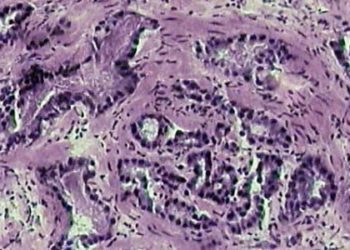Safety of MRI for patients with legacy cardiac devices
1. Patients with a legacy pacemaker or cardioverter-defibrillator were followed after undergoing medically indicated magnetic resonance imaging (MRI) examinations, and no long-term clinically significant adverse effects were reported.
2. The most common adverse event immediately after the MRI was power-on reset, which occurred at a rate of one out of two hundred MRI examinations.
Evidence Rating Level: 2 (Good)
Study Rundown: The Food and Drug Administration (FDA) currently designates pacemakers and implantable cardioverter-defibrillators (ICD) as magnetic resonance imaging-conditional (MRI) if they meet specific criteria. Devices not meeting these criteria are deemed ‘legacy’ and constitute the majority of currently used pacemakers and ICDs. Safety data with legacy devices is limited, so the this study aimed to determine the magnitude and nature of risk associated with MRI in patients with these devices. Using a prospective cohort design, adverse events and changes in device parameters were assessed in patients undergoing clinically indicated MRIs. They found no long-term adverse events that were attributed to MRI examinations. The most common acute adverse event was device power-on reset, which occurred at a rate of one in two hundred examinations. Although there were changes in device parameters noted after some MRIs, none were deemed clinically significant. In the context of other recently published data, this study provides increasing reassurance that MRI examinations can be safely performed with appropriate protocols in patients with legacy devices.
A major strength of the study is the contribution of data from a large cohort to what has previously been an understudied problem. Limitations include long-term missing data on 20% of enrolled patients, a relatively small sample size for each individual device models tested in the cohort, and the limitation to 1.5-Tesla MRI. Furthermore, the study design does not allow for an estimation of the unbiased causal effect of MRI on device performance.
Click to read the study in NEJM
Relevant Reading: Utilization and likelihood of radiologic diagnostic imaging in patients with implantable cardiac defibrillators
In-Depth [prospective cohort]: This prospective cohort enrolled 1509 patients at a single imaging center from 2003 through 2015, including 58% (n=880) of patients with a pacemaker and 42% (n=629) with an ICD. Patients were included if they had an ICD or pacemaker and a clinical indication for MRI examination. Patients were excluded if their leads were implanted within the four weeks prior to examination. Exclusion criteria related to the device included: permanent surgical epicardial leads, permanent nonfunctional leads, and subcutaneous ICD systems. Patients were most commonly imaged with a 1.5-Tesla system. The two classes of outcomes assessed were adverse events (e.g. battery depletion or cardiac arrhythmia) and changes in device parameters (e.g. P-wave amplitude, ventricular R-wave amplitude). Devices were examined at baseline and immediately after MRI in all cases.
2103 thoracic and nonthoracic MRI examinations were performed. Nine examinations led to a device power-on reset, which set the device into a backup mode (0.4% of all MRIs; 95%CI, 0.2% to 0.7%). One of these devices had less than one month of battery time left and could not be reset, so it had to be replaced. There were no long-term clinically significant adverse events reported after MRI examination. The most common device parameter changes, both immediate and long-term after MRI, were non-clinically significant decreases in P-wave amplitude; no parameter change was judged to warrant device reprogramming.
Image: CC/Wiki G. Marcus
©2017 2 Minute Medicine, Inc. All rights reserved. No works may be reproduced without expressed written consent from 2 Minute Medicine, Inc. Inquire about licensing here. No article should be construed as medical advice and is not intended as such by the authors or by 2 Minute Medicine, Inc.







